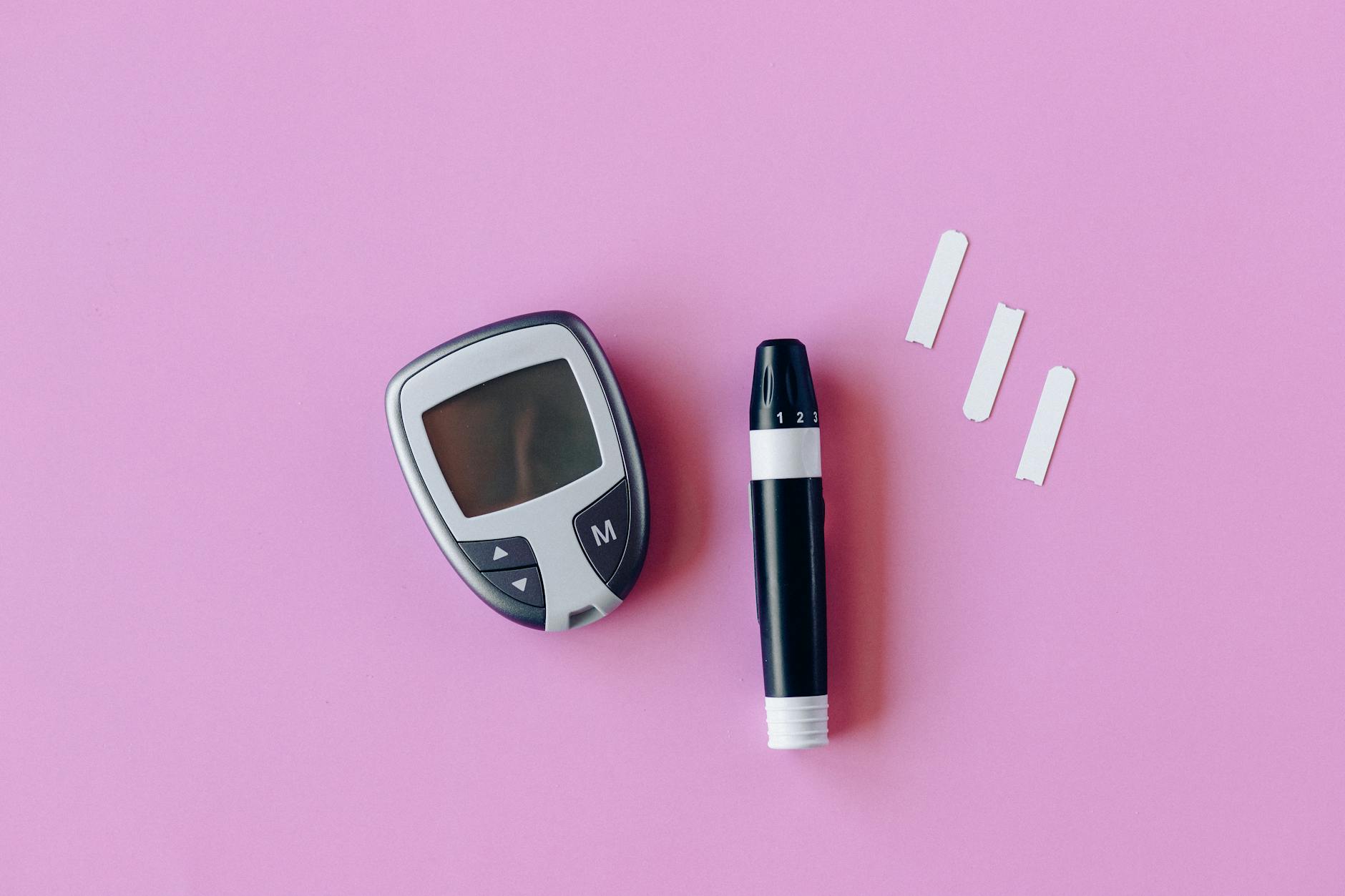Can Alcohol-Induced Diabetes Be Reversed By Stopping Drinking?

When it comes to alcohol-induced diabetes, the question of whether it can be reversed by quitting drinking is complex but hopeful. While stopping alcohol alone may not be a guaranteed cure, it can significantly improve blood sugar management and reduce the risk of further complications. The key lies in adopting a healthier overall lifestyle alongside quitting alcohol. For individuals seeking better control of their diabetes, even small positive changes can make a meaningful difference.
Understanding Alcohol-Induced Diabetes
The relationship between alcohol and diabetes is a significant yet often overlooked health concern. Alcohol can contribute to the onset and worsening of diabetes through various biological mechanisms. Understanding how this process unfolds requires breaking down its effects on the body and how these differ between individuals with Type 1 and Type 2 diabetes.
The Mechanism Behind Alcohol and Diabetes
Alcohol impacts your blood sugar and insulin levels in several ways. When you drink, your liver prioritizes breaking down alcohol over balancing glucose production. This leads to lower blood sugar levels (hypoglycemia) in the short term, especially for individuals on insulin or other glucose-lowering medications. However, in the longer term, heavy drinking can cause insulin resistance, a key driver of Type 2 diabetes.
The pancreas, responsible for insulin secretion, can also suffer from alcohol’s toxic effects. Chronic alcohol consumption damages pancreatic beta cells, impairing their ability to produce adequate insulin. Additionally, alcohol increases the production of Reactive Oxygen Species (ROS), molecules that further harm insulin regulation and cell functions.
For more insight into the connection between alcohol and diabetes at a cellular level, check out this article from PMC on alcohol-induced beta-cell dysfunction.
Types of Diabetes Affected by Alcohol
Alcohol affects Type 1 and Type 2 diabetes differently due to their separate causes and treatment needs.
Type 1 Diabetes: For individuals with Type 1, alcohol can be particularly dangerous. It exacerbates the risk of severe hypoglycemia, as it blocks the liver from releasing glucose when it’s most needed. This is further complicated by impaired judgment while drinking, making it harder to recognize or treat low blood sugar episodes.
Type 2 Diabetes: In contrast, Type 2 diabetes involves insulin resistance, which becomes worse with regular excessive drinking. Consistent alcohol intake reduces the body’s sensitivity to insulin and contributes to weight gain, both of which can worsen Type 2 symptoms. However, moderate or low drinking may not have the same negative effects and might even be neutral for some people.
The risks highlight why individuals with Type 1 or Type 2 diabetes should discuss alcohol use with their healthcare provider. You can explore this detailed guide by the American Diabetes Association on alcohol and diabetes management.

Photo by Artem Podrez
While quitting alcohol won’t reverse diabetes immediately, understanding its physiological mechanisms and type-specific risks paves the way for smarter decisions about drinking and health.
The Impact of Alcohol on Blood Sugar Levels
Alcohol has nuanced and significant effects on blood sugar levels that can vary depending on how much you drink, your eating habits, and your overall health. It’s important to understand both the immediate and longer-term consequences of alcohol consumption, especially for those concerned about diabetes.

Photo by Nataliya Vaitkevich.
Short-Term Effects of Alcohol on Blood Sugar
When you drink alcohol, your body’s priority shifts. Your liver, which normally helps maintain blood sugar levels by releasing glucose, starts focusing on processing the alcohol instead. This change can lead to hypoglycemia, or low blood sugar levels, especially for individuals who haven’t eaten prior to drinking. The effects can occur within a few hours after consumption.
Key short-term impacts include:
- Rapid blood sugar drops: Skipping meals while drinking can exacerbate the risk of dangerous lows. This is particularly significant for individuals with diabetes who use insulin or other glucose-lowering medications.
- Unpredictable swings: While moderate alcohol may cause minimal changes, heavy or binge drinking can produce erratic blood sugar levels.
- Judgment impairment: Alcohol can cloud your ability to recognize symptoms of low blood sugar, such as dizziness, sweating, or confusion.
For a detailed explanation of alcohol’s short-term impact on glucose levels, refer to the American Diabetes Association’s guide on alcohol and diabetes.
Long-Term Effects of Alcohol on Metabolism
Chronic alcohol consumption doesn’t just lead to temporary blood sugar fluctuations; it can also harm the body’s glucose regulation mechanisms over time. Regular heavy drinking damages key systems, increasing the risk of Type 2 diabetes.
Here’s how chronic drinking impacts metabolism:
- Pancreatic damage: Alcohol disrupts the function of the pancreas, which produces insulin, leading to poor glucose control. Over time, this damage can contribute to insulin resistance.
- Impaired glucose production: As alcohol rewires how the liver functions, it may hinder the liver’s ability to produce and release glucose effectively during fasting states.
- Weight gain and insulin resistance: Alcohol is calorie-dense, and excessive intake often leads to weight gain. Extra body fat, especially around the abdomen, significantly worsens insulin sensitivity.
For more insights on how alcohol affects metabolism over the long haul, see this comprehensive resource on nutritional and metabolic effects of alcohol.
Chronic alcohol use not only taxes your liver and pancreas but also strains your entire metabolic system, leaving your body less equipped to manage glucose properly. These risks emphasize why curbing alcohol consumption is a critical step for those aiming to reverse or manage alcohol-induced diabetes.
Can Quitting Alcohol Reverse Diabetes?
For individuals managing alcohol-induced diabetes, the idea of reversing the condition by stopping alcohol consumption offers promising potential. Although diabetes cannot always be entirely reversed, abstaining from alcohol plays a significant role in improving overall health and blood sugar control. Let’s explore some findings and benefits that highlight how quitting alcohol can impact diabetes outcomes.
Research Findings Regarding Reversal
Numerous studies indicate that quitting alcohol can positively affect blood sugar regulation and insulin sensitivity. Heavy alcohol use disrupts glucose metabolism, while stopping alcohol can help restore the body’s balance. For example, a study published in PMC highlights that abstinence from alcohol significantly improves glucose tolerance and reduces insulin resistance, especially in individuals with Type 2 diabetes. Chronic alcohol exposure damages both liver and pancreatic functions, but research shows that halting consumption allows these organs to recover, leading to better glycemic control.
Additional studies emphasize the link between decreased alcohol intake and reduced inflammation in the body. Inflammation caused by sustained alcohol consumption interferes with insulin signaling and contributes to Type 2 diabetes. By removing alcohol from the equation, the body experiences less metabolic stress, which paves the way for improved insulin effectiveness. This connection is detailed in a review provided by Polar Bear Meds.
It’s also worth mentioning that recovery timelines vary. While some individuals may see improvements in blood sugar levels and insulin sensitivity within weeks, others may take longer based on their overall health and the severity of alcohol-induced damage.
Health Benefits of Quitting Alcohol
Stepping away from alcohol doesn’t just help manage diabetes—it brings a cascade of health improvements that support overall well-being. Here’s a closer look at the key benefits:
Improved Liver Function: The liver is critical for both glucose production and alcohol detoxification. Over time, alcohol damages liver cells, but quitting allows the organ to repair itself. Improved liver function enhances glucose regulation, making it highly beneficial for diabetes management. Learn more about liver recovery and alcohol cessation on Healthline.
Stabilized Blood Sugar Levels: Without alcohol interfering with glucose production, the body experiences fewer blood sugar spikes and drops. This stability is crucial for people with diabetes seeking better control over their condition. Studies outlined by UCSF Diabetes Education explain how alcohol abstinence prevents hypoglycemia and other complications.
Weight Management: Alcohol is calorie-dense and can contribute to weight gain, a major factor in developing insulin resistance. Quitting alcohol cuts out empty calories, making it easier to lose weight and enhance insulin sensitivity.
Reduced Risk of Cardiovascular Disease: Excessive alcohol intake is linked to heart issues, which often coexist with diabetes. By quitting alcohol, you lower your blood pressure, improve cholesterol levels, and reduce the risk of cardiovascular complications.
Enhanced Mental Clarity and Energy Levels: Alcohol influences brain function, often leading to fatigue and foggy thinking. Removing alcohol frees your body and brain to focus on healing, aiding motivation and consistency in managing diabetes.
In short, stopping alcohol consumption not only alleviates the immediate metabolic burden on your body but also sets the stage for long-term health improvements. For a more in-depth look at quitting alcohol, visit Orlando Recovery’s resource on alcohol and diabetes.
These findings and benefits demonstrate the powerful role alcohol abstinence plays in reversing or significantly improving the trajectory of alcohol-induced diabetes.
Lifestyle Changes to Support Diabetes Management
Making thoughtful lifestyle changes is essential for managing diabetes, particularly after quitting alcohol. Proper adjustments in diet, exercise, and blood sugar monitoring can create a balanced approach that fosters better long-term health.
Nutrition and Diet Adjustments
Your diet plays a pivotal role in diabetes management, especially after stopping alcohol. Eliminating alcohol isn’t just about removing a trigger; it’s about replacing it with healthier choices that stabilize blood sugar levels and support overall well-being.
Some effective dietary changes include:
- Focus on whole foods: Incorporate nutrient-dense vegetables, lean proteins, whole grains, and healthy fats. These foods have a more gradual impact on your blood sugar compared to processed options.
- Maintain portion control: Large meals can lead to blood sugar spikes. Eating smaller, balanced meals throughout the day helps maintain stability.
- Avoid added sugars: Opt for natural sweeteners like stevia, and avoid sugary beverages or snacks that could disrupt glucose levels.
- Eat fiber-rich foods: Foods high in fiber, such as legumes, nuts, and seeds, can improve insulin sensitivity and manage blood sugar.
For more guidance on crafting a diabetes-friendly diet, check out the Mayo Clinic’s diabetes diet resource.

Photo by Towfiqu barbhuiya
Exercise and Physical Activity
Exercise can significantly improve the way your body processes insulin, making it a cornerstone of effective diabetes management. Quitting alcohol frees up mental and physical energy to focus on movement, which directly benefits blood sugar regulation.
Here’s how to incorporate physical activity into your lifestyle:
- Start low and progress gradually: Begin with activities like walking or cycling for 20–30 minutes daily. Gradual progress ensures sustainability.
- Incorporate strength training: Exercises that build muscle can reduce insulin resistance and improve overall glucose metabolism. Aim for resistance training twice a week.
- Stay consistent: Regular activity matters more than intensity. Even light exercises like yoga or gardening can improve insulin sensitivity.
To learn more about the connection between exercise and diabetes, explore the American Diabetes Association’s fitness resource.
Monitoring Blood Sugar Levels
Regular monitoring of blood sugar is vital for understanding your body’s response to lifestyle changes, including alcohol cessation. This practice helps you identify patterns and make adjustments in diet, medication, or activity accordingly.
Key tips for effective blood sugar monitoring:
- Use the right tools: Invest in a reliable glucometer or consider a continuous glucose monitor (CGM) for accurate readings.
- Test strategically: Measure your blood sugar during different times of the day—before meals, post-meals, and after exercise—to get a comprehensive picture.
- Record and analyze trends: Keeping a log helps you track progress and discuss any concerns with your healthcare provider.
- Adjust based on readings: High or low results may indicate the need for changes in food intake, medication, or activity levels.
For step-by-step guidance on monitoring, visit the CDC’s blood sugar monitoring guide.
These lifestyle changes not only support diabetes management but also create a healthier, more balanced life overall.
Key Takeaways
Understanding how alcohol impacts diabetes and the potential for reversal by quitting drinking requires unpacking several factors. While stopping alcohol consumption alone isn’t a universal cure for diabetes, it can lead to significant improvements in blood sugar control, insulin sensitivity, and overall health outcomes. Below are the key takeaways to keep in mind as you explore this topic further.
Stopping Drinking Can Improve Blood Sugar Management
When alcohol is no longer interfering with liver function and glucose production, blood sugar levels become more stable. This can reduce the risk of both hypoglycemia (low blood sugar) and irregular spikes, providing a better foundation for managing diabetes symptoms.
Long-Term Alcohol Use Can Cause Lasting Effects
Excessive drinking over time contributes to insulin resistance and damages the pancreas and liver, two organs central to glucose metabolism. While quitting drinking helps these systems recover, the degree of improvement often depends on how long and how heavily a person has consumed alcohol. Learn more about long-term effects on blood sugar control and recovery.
Quitting Alcohol Brings Broader Health Benefits
Abstaining from alcohol doesn’t just help with diabetes—it supports better liver health, reduces inflammation, encourages weight loss, and lowers the risk of cardiovascular diseases that often accompany diabetes. For an overview of additional health benefits, check out this resource.

Photo by MART PRODUCTION.
Lifestyle Changes Enhance Alcohol Abstinence Benefits
Quitting alcohol works best when paired with supportive lifestyle changes. Proper nutrition, regular exercise, and consistent blood sugar monitoring amplify the physiological and metabolic improvements that come from stopping drinking. Explore lifestyle adjustments to better manage diabetes.
Taking control of alcohol consumption offers a powerful tool in the broader journey of managing diabetes and improving overall health. However, success depends on consistency, commitment, and integrating other positive health practices.
Conclusion
Stopping alcohol consumption is a pivotal step toward improving your health if you have alcohol-induced diabetes. While it may not fully reverse the condition, abstaining from alcohol allows the liver and pancreas to recover, stabilizes blood sugar levels, and supports better insulin sensitivity.
Paired with essential lifestyle changes such as a balanced diet, regular exercise, and consistent glucose monitoring, alcohol cessation can significantly enhance diabetes management. It’s a powerful reminder that small, consistent choices lead to lasting health improvements.
Ready to take the next step? Start by consulting a healthcare provider to create a personalized plan that aligns with your needs. Share your thoughts or journey in the comments to inspire others!





